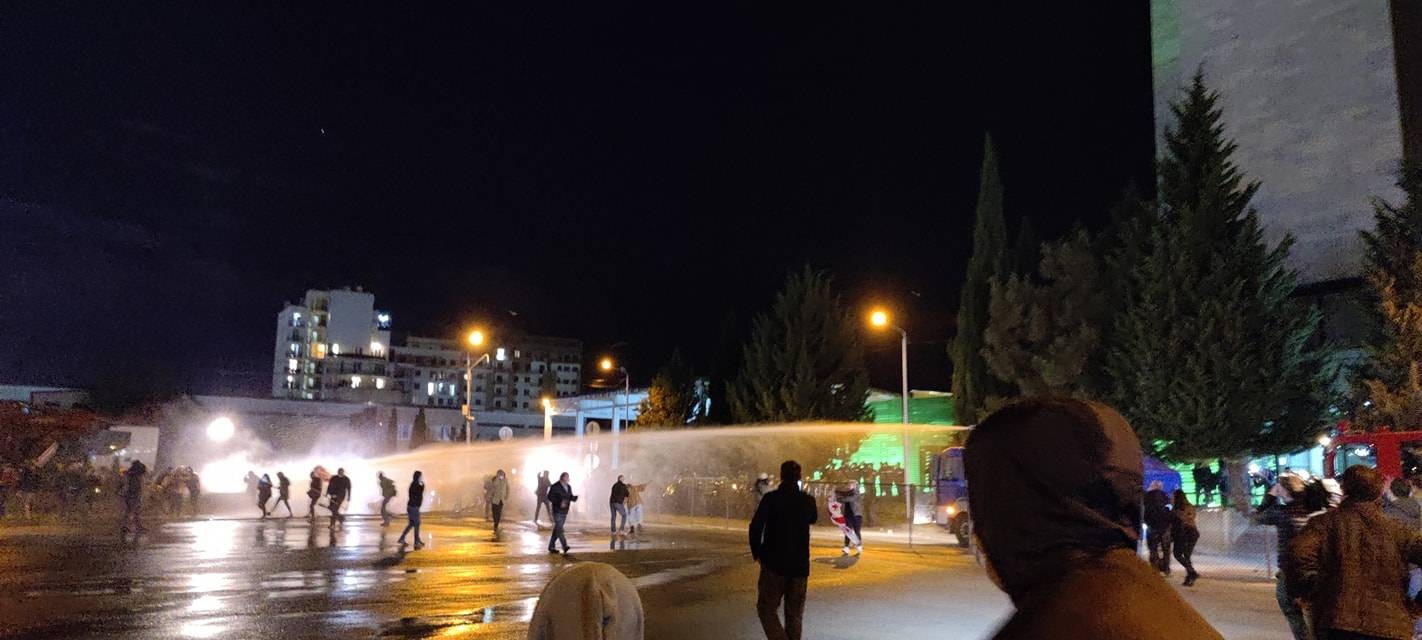საერთო ცხელი ხაზი +995 577 07 05 63


A few minutes ago, special forces of the Ministry of Internal Affairs started using special means against the protesters in the vicinity of the Central Election Commission, while only a fraction of rally participants were gathered on the spot and a large part of them exhibited essentially peaceful behavior. Water cannons were deployed by a large number of special forces, mobilized on the spot, without any prior warning.
Pursuant to Article 33, para 3(g) of the Law on Police, the use of water cannons is permitted to prevent a mass breach of law, to repel a group attack on a state and / or public facility, and in other cases. According to international standards, measures such as tear gas or water cannons, which pose a high risk of harm, can only be used as a last resort, when there is mass violence, if all other means have failed to contain the violence.
The video footage released by the media shows that the above-mentioned preconditions provided by law did not exist in the case of the assembly under consideration. Consequently, under these conditions, there were no legal grounds for dispersing the assembly and using excess special means. Moreover, the deployment of the water cannon was not preceded by a warning to the protesters and the opportunity to leave the gathering place freely was not provided. Prior to the use of the water cannon, the police also did not attempt to defuse the situation by using less restrictive means. Moreover, the statement by government officials that it was impossible to warn participants prior to the use of police force is unsubstantiated, as there was no immediate and urgent danger which would mean that the obligation to warn the protestors would pose a substantial threat to public interest or public order.
The use of repressive apparatus by the state during a political crisis has become part of our political experience. It is unfortunate that the ruling political party, which, for years, has based its moral legitimacy on the rejection of repressive practices, in recent years has itself created the experience of repressive dispersal of mass rallies. This practice substantially damages the foundations of a democratic and legal state and poses a high risk of violating human life, health and freedom of assembly. Such a response to political crisis increases the radicalization of politics and deepens mistrust, nihilism and polarization.
EMC calls on:
The website accessibility instruction